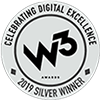 OVC TTAC provides practitioner-driven, evidence-based training and technical assistance (TTA) that is responsive to the particular needs of victim service providers, their communities, and the victims they serve, including a specific focus on human trafficking. The types of TTA include tailored, onsite consultations and trainings in response to specific requests
and a number of online resources, including our e-Guide for newly formed and established multidisciplinary task forces.
OVC TTAC provides practitioner-driven, evidence-based training and technical assistance (TTA) that is responsive to the particular needs of victim service providers, their communities, and the victims they serve, including a specific focus on human trafficking. The types of TTA include tailored, onsite consultations and trainings in response to specific requests
and a number of online resources, including our e-Guide for newly formed and established multidisciplinary task forces.
Examples of types of support from OVC TTAC:
- OVC TTAC team provides phone and 6-hour on-site technical assistance consultation to members of a multidisciplinary group interested in forming an human trafficking task force in Ohio. The TA addressed various issues such as task force structure and formation, leadership, and membership.
- OVC TTAC sends an expert consultant to South Carolina to train approximately 200 mental health care providers, legislators, law enforcement personnel, hotel staff, and other allied professionals on the identification of human trafficking victims. OVC TTAC maintains a consultant database of subject matter experts and trainers nationwide who are selected for TTAs.
- OVC TTAC provides financial support and facilitates a group of task force members from Texas to visit and shadow an human trafficking victim service organization in Georgia to help the task force design a statewide protocol for comprehensive services to victims of human trafficking.
Take Action
Take Action. If you are a service provider or organization of any kind, follow the link below for some of the ways in which we can support your human trafficking efforts.
Resource
Best Practices in Developing Training Materials (PDF, 167 KB): This fact sheet outlines key adult learning principles that organizations should consider as they develop training and written materials.








